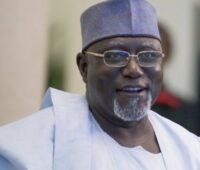By Chukwuma Umeorah
The Securities and Exchange Commission’s (SEC) recent directive prohibiting Independent Non-Executive Directors (INEDs) from assuming executive roles within the same company or group structure has received support from key market stakeholders, particularly shareholders who view it as a step toward safeguarding boardroom neutrality and improving investor confidence.
The directive, released on June 19, 2025, under the title “Circular to All Public Companies and Capital Market Operators on the Transmutation of Independent Non-Executive Directors and Tenure of Directors,” mandates the immediate discontinuance of converting INEDs to executive positions such as Chief Executive Officer or Executive Director. It also sets tenure limits of 10 consecutive years for directors within the same company and 12 years within the same group.
Additionally, any former CEO or Executive Director must observe a three-year cooling-off period before taking up the role of Chairman, whose maximum tenure shall be four years.
In the circular, the Commission stated that the practice of converting INEDs to executive roles “clearly erodes the neutrality of the transmuting INEDs, compromises their ability going forward to provide objective judgment and is generally antithetical to the principles which underpin independent directorship as outlined in both the National Code of Corporate Governance (NCCG) as well as the SEC Corporate Governance Guidelines (SCGG).”
Analysts believe the move aligns with a growing global push for stricter board governance and a clearer separation between oversight and management functions. Managing Director and Chief Executive Officer of Arthur Stevens Asset Management, Olatunde Amolegbe, said the development was expected.
“As the circular said, it is just seeking to enforce codes that are already in the statute which should not be surprising. Besides, we’ve already seen such a measure implemented in the banking sector some years ago, so it was really only a matter of time before it applies to the capital market,” Amolegbe noted.
He emphasised the importance of sustainability in corporate leadership, adding, “The critical issue is to ensure significant players in the market have solid succession planning and ensure that their businesses operate in a sustainable way for the benefit of all stakeholders, particularly the public that rely on their services.”
For many shareholders, however, the rule addresses a long-standing concern about governance integrity in listed companies. National Coordinator of the Progressive Shareholders Association of Nigeria (PSAN), Boniface Okezie, described the directive as overdue and essential. “I support the SEC’s position if such transitions are occurring, it’s unacceptable. If this is proposed at an annual general meeting (AGM), I’d oppose it, and shareholders should do the same,” Okezie stated.
“Independent non-executive directors are appointed to provide neutral oversight of corporate governance, free from shareholding or company affiliations. Their role is to protect minority shareholders and challenge decisions that harm them. Allowing them to move into executive roles undermines their neutrality, which is a clear abuse of corporate governance,” he added.
Okezie however, expressed reservations about the broader posture of the SEC, warning that some of its policies may be misaligned with domestic realities. “The SEC’s broader policies often lack local context. Some regulations seem copied from foreign markets, like Asia, without adapting to Nigeria’s realities,” he said.
Responding to the Commission’s argument that executive transmutation compromises independence, Okezie affirmed: “Absolutely. Such a move is not done and violates governance principles. If an independent director becomes an executive, it’s an illegality driven by the company’s owners, not the SEC. I’m unaware of specific cases, but this cannot stand. Shareholders must challenge it at AGMs.”
He also criticised the increasing use of virtual AGMs in Nigeria, stating that they undermine transparency and shareholder engagement. “The SEC also needs to address virtual AGMs, which reduce transparency. Shareholders need active participation links, not passive viewing options. This lack of engagement allows questionable decisions to pass unchecked.”
Beyond INED transmutation, Okezie urged the Commission to pay more attention to broader unresolved market problems. He called on the regulator to widen consultation before policy pronouncements. “The SEC must consult widely before imposing rules, as some often disadvantage shareholders. Our regulators should stop copying foreign models and address Nigeria’s unique challenges.”
Although these stakeholders suggest the policy may improve Nigeria’s corporate governance image in the long run, they caution that implementation must be fair and accompanied by clear compliance timelines. Market watchers agree that the ultimate test will be whether listed companies and market operators prioritize board reform beyond cosmetic adjustments.
They noted that in the short term, the directive is unlikely to have any significant impact on share prices. But for institutional investors and governance-focused funds, it could reinforce confidence in board structures, particularly in companies where lines between ownership and control have historically been blurred.


















Leave a comment